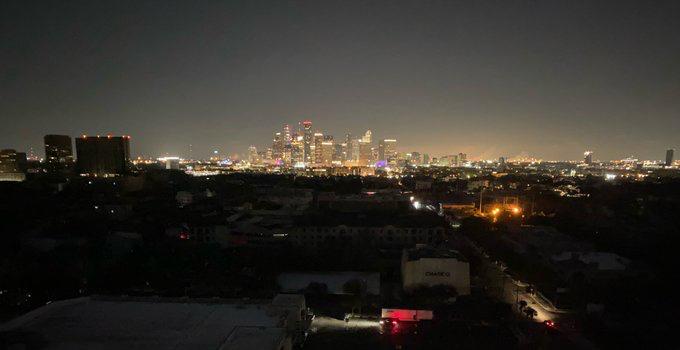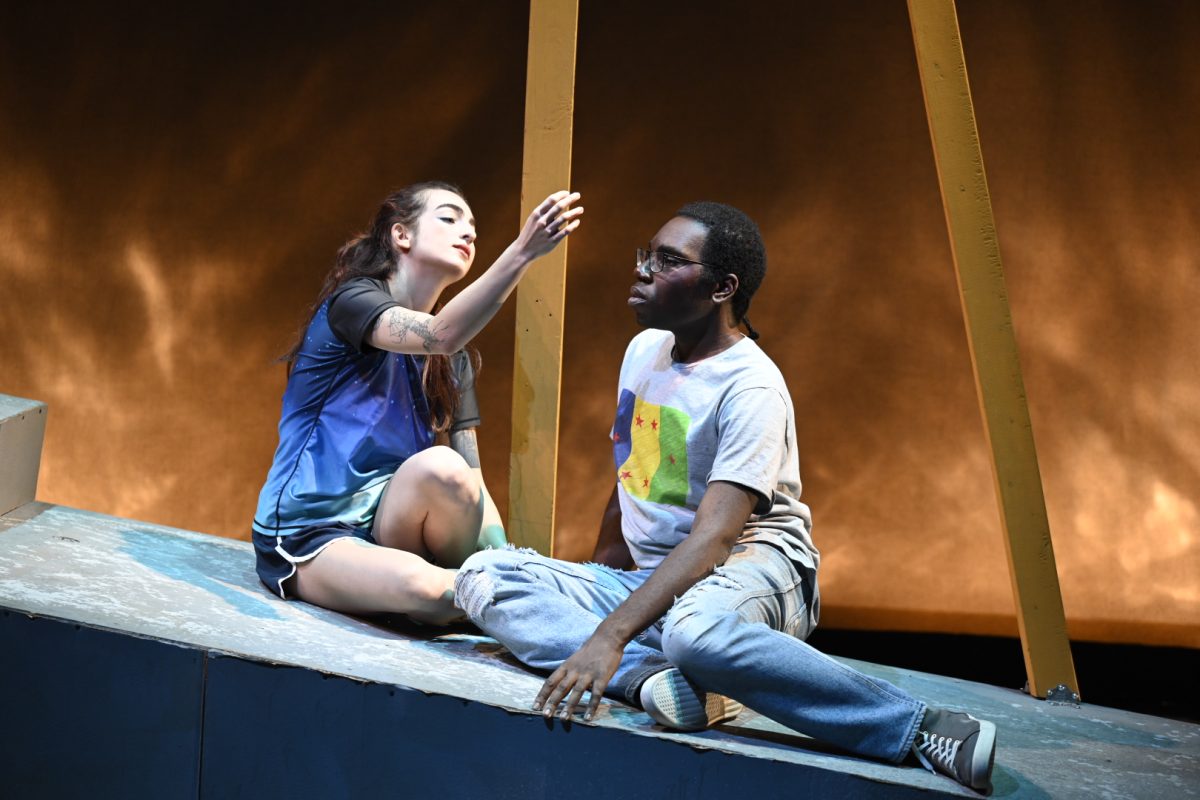When Sergio Gonzalez ’23 woke up in Houston on February 17 and checked his faucet to see if his water was running again, he couldn’t believe that he could see his breath indoors.
At first, he thought he had to be dreaming; it couldn’t be that cold inside the house, could it? He checked the thermostat. It was below freezing.
Beginning around February 11, a severe winter storm generated record cold temperatures throughout the United States. In Texas, temperatures plunged into the single digits for the first time in decades. The Electric Reliability Council of Texas (ERCOT) instituted rolling blackouts beginning on Monday, February 15, to prevent uncontrollable blackouts due to failure of a power grid unequipped for extreme cold, according to the Texas Tribune.
Carleton students studying remotely in Texas were forced to juggle surviving harsh conditions and being full-time college students.
The rolling blackouts were met with overwhelming public outrage as many Texans were left freezing in their houses without electricity or heat for days on end. On top of everything else, Texan houses are designed to shed heat to accommodate scorching temperatures in the summer. According to the Wall Street Journal, nearly 80 people have died from hypothermia, carbon monoxide poisoning, and other factors caused by the storm, though the full death total may take months to calculate.
With no heat in his house, Gonzalez was forced to wrap himself in layers of blankets as the temperatures descended at night. “With the mountain of blankets and my own warm-blooded body heat, I was okay at night. When I woke up, I knew it was going to be freezing the second I took the blankets off.” It was so cold that Gonzalez described feeling his nose hairs freeze, a familiar sensation for many Carleton students walking to class in Minnesota winters. “It was super jarring. It was crazy this was happening in my own house,” he said.
Claudia Hernandez-Barrientos ’21 was so cold inside her house in Houston that on Wednesday, February 17, she and her family decided to stay inside their car, the only place left with heat. “We drove a couple miles away from the house to see if any businesses were open. Eventually, we found a street with some businesses open and that’s where we got food, actual food. We ate gas station food and I used their hotspot to log into class,” said Hernandez- Barrientos.
Access to regular food was a major concern. When their power went out, most of the food in Gonzalez’s fridge spoiled and cooking appliances were rendered unusable. Gonzalez’s only option was to drive to his mother’s house once a day for a hot meal. “I was thinking, ‘Where am I going to get water? Where am I going to get my next meal?’ There was no meat in stock, no frozen foods. All we could get were nonperishables,” said Gonzalez.
“Knowing that I was falling behind in my classes was really weighing on my mind. I knew for a fact that everyone else was going along normally—the storm wasn’t affecting the whole class. It was just me who was falling behind,” said Gonzelez.
Reaching out to professors proved effective in receiving accommodations for most. Gustavo Flores ’23 was thankful for understanding responses from his professors, as was Gonzalez. Gonzalez added that he felt particularly supported by one professor who sent a personal message sympathizing with his situation in comparison to professors who were receptive of extension requests but otherwise detached.
Administratively, on Wednesday, February 17, Dean Livingston sent an email to the 86 students studying in or connected to the Houston area, including the 41 members of the Posse Scholar program. The email offered support regarding academic deadline flexibility and promised to get emergency funding to students who requested it “as soon as we can.” For those who did not respond to the email, Dean Livingston promised to “call those we don’t hear from,” since “even responding to this email may be difficult.”
Flores appreciated the administration’s response, saying that “they could have done a little more, but it was only a four day period, and with all the slow bureaucracy in the administration,” he understands why larger action was not taken.
Amber Lozoya ’23 described her distrust surrounding the administration’s response. “My Posse members and I felt a little hesitant reaching out to Carleton because in the past when we asked for help, they were really unresponsive. Some of us haven’t gone back to Carleton for two terms now and we didn’t understand why our financial aid decreased by a lot. We weren’t on campus so we were supposed to have smaller charges. We contacted Carleton and none of their responses made sense. Anytime we asked for financial help, they would send us to a different department, who would send us to another department and we would go in circles, never getting our answers,” said Lozoya.
“Not knowing if your family is okay or not puts a huge emotional strain on people. We’re in a climate crisis on top of a pandemic, in Seventh Week, and we need more resources,” said Alé Cota ’22.
For many, financial concerns caused by the natural disaster are overwhelming. “The government [of Texas] is acting like it’s a completely normal month and people are fine. We’re not. They’re willing to discard human lives. We’ve known this for a while and now this has solidified that,” said Flores.
Feeling the absence of official help, some students are taking their communities’ wellbeing into their own hands. Cota worked with the mutual aid working group of the Corpus Christi chapter of Democratic Socialists of America to redistribute wealth and emergency funds. “We have an undocumented population and a pretty large unhoused population in Corpus, who already receive a lot of hostility from the city council and city government. A lot of the mutual aid work was getting people forms where they could request aid, fundraising, that kind of stuff. It took up most of my time that week,” said Cota. Flores emphasized the importance of crowdfunding, explaining that because of mutual aid, he was able to help cover the costs of his high school teacher’s burst pipe. Climate science suggests that the storms in Texas are a result of climate change, as summers get hotter and winters get colder around the world. Cota emphasized that environmental efforts on campus regarding sustainability need to be more holistic and less focused on the individual. “There’s been a recent push to minimize our personal waste product on campus, but we shouldn’t be focusing on whether or not someone forgets to compost their food,” said Cota. “We need to focus on larger things like whether or not Carleton divests from fossil fuels, which they are still invested in, or making sure construction on campus uses sustainable strategies.” Without action, climate disasters will continue to dismantle lives.













